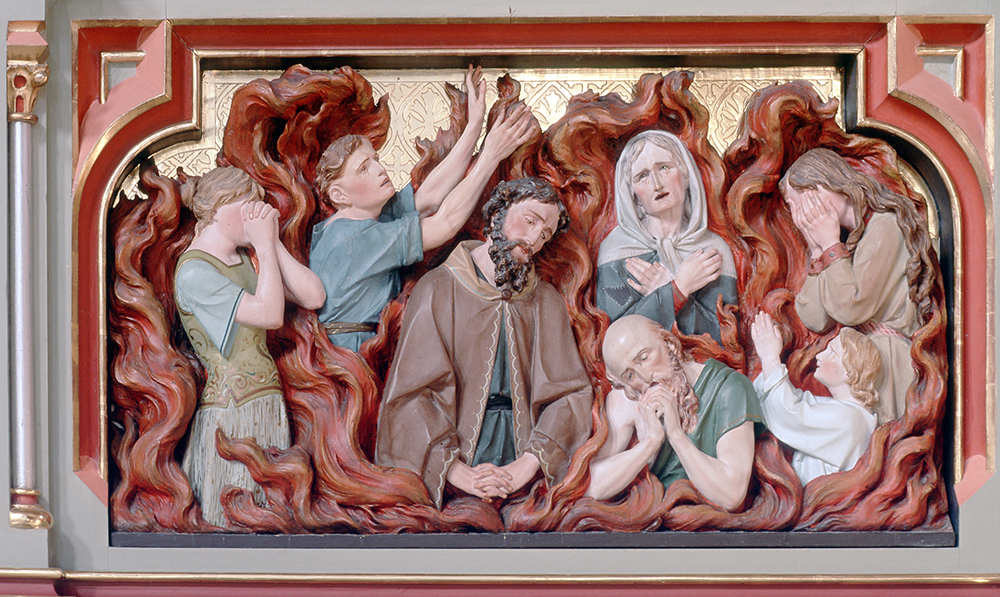There are, sadly, some Catholics who do not believe in purgatory. Happily, the Catholic Church still teaches that purgatory is real.
Why? Because the Catholic Church believes in the sanctifying work of Jesus Christ, the reality of God’s justice and mercy, and the fact that man has two options for eternity: heaven or hell.
But why do I say “happily”? Because purgatory, properly understood, is the mercy and grace of God at work, and so is a revelation of His love. Of course, the misunderstandings and misrepresentations of purgatory are many. It is sometimes presented as being on an equal plane with heaven or hell. However, purgatory is not a final destination, but rather a state of preparation for the destination of heaven. Some think purgatory is a second chance, as if upon death there is a sign before us, stating, “Left to Hell; Right to Heaven.” But after death, there is judgment (see Heb 9:27), which means our decision has already been made, on this side of the grave. Likewise, purgatory is not part of hell. Yes, there is suffering in purgatory, but it is the joyful suffering of those being completely cleansed of all impurity so they can enter the presence of God. This is radically different from the torment of hell.
Anyone who thinks purgatory is somehow separate from the work of God is mistaken. The very name, purgatory, comes from a Latin word purgatorium, referring to purification. This should raise basic questions: Who is being purified? By whom? For what reason?
The great Swiss theologian Father Hans Urs von Balthasar put it very well when he wrote: “God is the ‘last thing’ of the creature. Gained, he is paradise; lost, he is hell; examining, he is judgment; purifying, he is purgatory.” All, in the end, is about God. And that includes purgatory, which exists for a single goal: complete and full communion with God in heaven. This divine purification, then, must be seen within the big picture of what the Church teaches about the last things: death, judgment, hell, heaven.
Yet not all of the righteous are completely free of imperfections and lesser, or venial (Latin, venia, meaning “pardonable”), sins. Once the righteous die, they are bound for heaven. But if they are not yet completely holy, they have need of further sanctification and therefore head to what C.S. Lewis described as a divine “washroom.”
As the Catechism of the Catholic Church explains: “All who die in God’s grace and friendship, but still imperfectly purified, are indeed assured of their eternal salvation; but after death they undergo purification, so as to achieve the holiness necessary to enter the joy of heaven. The Church gives the name Purgatory to this final purification of the elect, which is entirely different from the punishment of the damned” (Nos. 1030-31, emphasis in original).
Although the word purgatory is not in the Bible, the idea certainly is (just as the word Trinity is not in Scripture, but is thoroughly scriptural).
Paul, in a passage about good works, wrote, “If anyone builds on the foundation with gold, silver, precious stones, wood, hay, straw, the work of each will come to light; for the Day will disclose it. It will be revealed with fire, and the fire [itself] will test the quality of each one’s work” (1 Cor 3:12-13). In some cases, fire will burn up a man’s work and he “will suffer loss,” yet “the person will be saved, but only as through fire” (see 1 Cor 3:15). The mystics call this “the fire of love.”
God is “a consuming fire” (Heb 12:29); His divine love torments those who reject Him but perfects those who humbly accept Him. And that state of purification between death and heaven is purgatory.

